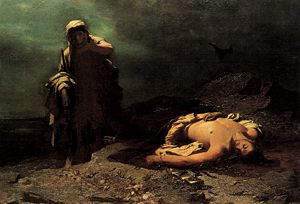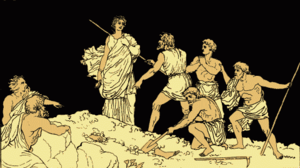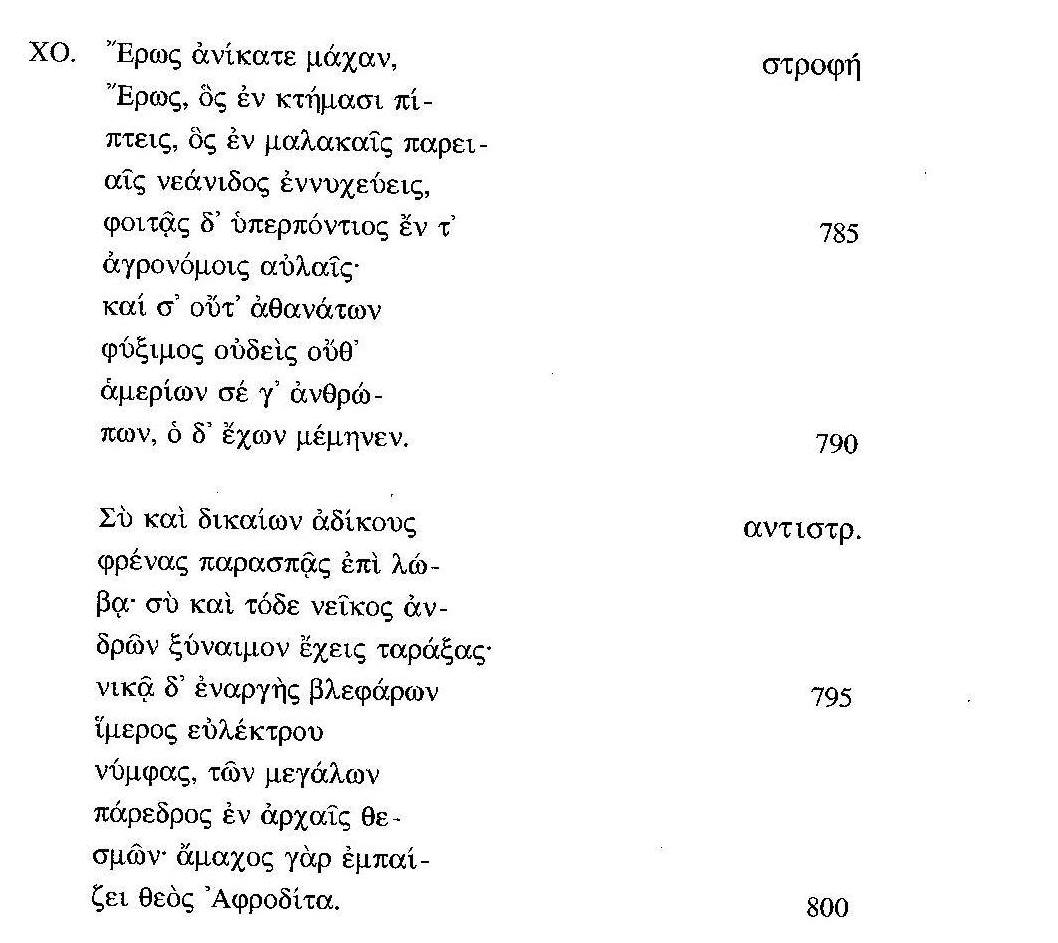

Meeting in Greece ( 27/9-2/10/2009)
The program of the meeting week in Greece
Few words about Ancient Drama and Antigone: ( Preparation for recitation in Epidaurus)
In Greek Mythology our ancient ancestors, were honoring the twelve gods and goddesses, supposedly living on the mount Olympus, which is the highest in Greece.
Zeus was considered as the father of gods.
Dionyssos was celebrated as the god of wine and its pleasures.
Lots of festivities were taking place in ancient times honoring Dionyssos.
All these feasts and performances had a “ dramatic” character. The word “Drama” originates from the verb “ dro” which means “ I act, I perform”
Following forms are noted:
a. Tragedy
b. Comedy and
c. Satirical drama
In the ancient theater of Epidaurus great performances of these were taking place during the drama competitions that were organized.
Most famous writers of that time whose works are still performed in today’s festivals are Aeschylus, Sophocles, Euripides, Aristophanes, Menandros.
“ Antigone” of Sophocles, written in 442 b. C. won first prize at the competition that followed its creation. It is most famous. It contemplates our devotion and obedience should by.
Should we obey human rulers against human values or god wishes or we should stick to the latter?
 Antigone
an angel of internal ( and external) beauty is definitely siding with the
unwritten eternal and worldwide respected human values and holly commandments,
as is the respect and burial of the death. Specifically the dilemma of Antigone
was: Should she burry the body of her brother Polynikis with the traditional
honours or should she obey king Kreon’s specific orders to the contrary.
Antigone
an angel of internal ( and external) beauty is definitely siding with the
unwritten eternal and worldwide respected human values and holly commandments,
as is the respect and burial of the death. Specifically the dilemma of Antigone
was: Should she burry the body of her brother Polynikis with the traditional
honours or should she obey king Kreon’s specific orders to the contrary.
Eteocles and Polynikis, both Antigone’s brothers, were successively sharing power, when Eteocles encouraged from the king of Thiva, Kreon denounced the arrangement and decided to keep it for alone.
Polynikis protested in vain and the
dispute lid to a duel out of the walls of the town where the brothers killed
each other. King Kreon ordered formal burial with honors for Eteocles while the
body of Polynikis should be left unburied.

Antigone buried her brother despite the King’s orders following the eternal traditions and her duty as a sister and a human being.
This led to her punishment and death on king’s orders as she ignored his authority. Meanwhile King Kreon’s son Aimon was in love with Antigone and soon as Antigone died, Aimon committed suicide on her tomb.
Kreon was well paid by fate for his malicious actions…….
In the meantime “choros” ( expressing the public, the society) starts the “choricon”, an hymn to love, most famous still in our days.
Chorico: "Eros anikate mahan"
Rolling down you can see this verse in the languages of our nations
In Greek:

In Latin characters:
Choriko:
"Eros an’ikate mahan
Eros os en ktimasi p’iptis
Os en malak’es pari’es
ne’anidos enih’evis.
Fit’as thiperp’ontios en
tagron’omis avl’es
Kai sout athan’aton
f’iximos oud’is
outhamer’ion se y’ anthropon,
o th ‘ehon m’eminen.
Si ke dik’eon ad’ikous
fr’enas parasp’as ep’i l’ova.
Si ke t’othe n’ikos anthr’on
x’inemon ‘ehis tar’axas.
Nik’a d enarg’is vlef’aron
‘imeros evl’ektrou
n’imfas, ton meg’alon
p’aredros en arh’es thesm’on.
‘Amahos gar emp’ezi the’os Afrod’ita".
In English:
"Love, unconquered in the fight
Love, who makest havoc of wealth,
who keepest thy vigil on the soft cheek of a maiden;
thou roamest over the sea
and among the homes of dwellers in the wilds;
no immortal can escape thee,
nor any among men whose life is for a day;
and he to whom thou hast come is mad.
The just themselves have their minds warped by thee to wrong,
for their ruin:
‘tis thou that hast stirred up this present strife of kinsmen;
victorious is the love-kindling light from the eyes of the fair bride;
it is a power enthroned in sway beside the eternal laws;
for there the goddess Aphrodite is working her unconquerable will".In German
Antigone
CHOR
Geist der Liebe, dennoch Sieger
Immer in Streit! Du Friedensgeist, der über
Gewerb einnicket und über zärtlicher Wange bei
Der Jungfrau übernachtet
Und schwebet über Wassern
Und Häusern, in dem Freien.
Fast auch Unsterblicher Herz zerbricht
Dir und entschlafender Menschen, und es ist,
Wer's an sich hat, nicht bei sich. Denn
Du machest scheu der Gerechten
Unrechtere Sinne, daß in die Schmach weg
Sie flüchten, hältst dich hier auf, im Männerzank,
Im blutsverwandten, und wirfst es untereinander.
Und nie zuschanden wird es,
Das Mächtigbittende,
Am Augenlide der hochzeitlichen
Jungfrau, im Anbeginne dem Werden großer
Verständigungen gesellet. Unkriegerisch spielt nämlich
Die göttliche Schönheit mit.
Jetzt aber komm ich eben selber aus
Dem Gesetze. Denn ansehn muß ich dies, und halten kann ich
Nicht mehr die Quelle der Tränen,
Da in das alles schweigende Bett
Ich seh Antigone wandeln.
In Italian
In Lithuanian
Erote neįveikiamas!
Erote, ieškantis aukų!
Tu ilsiesi, viešėdamas
Ant švelniųjų skruostų mergaitės,
Tu plazdeni virš vandenų
Ir prastoje lūšnoj.
Trumpadienis žmogus nei amžini dievai –
Niekas tavęs neišvengs,
O ką aplankai – pamyšta.
Tu ir doras širdis verti
Tapt nedorom ir pražudai.
Tu ir gimines šiuos dabar
Priešais pavertei, kad kovotų.
Tačiau šviesus ir patrauklus
Žvilgsnis mergaitės šios
Viršų ims: ta galia jai ąmžinų duota
Nuostatų ir neįveiks
Žmogus Afroditės žaismo.
In Polish
Antigone
Miłości, któż się wyrwie z twych obierzy!
Miłości,
która runiesz na ofiary,
W gładkich dziew licach gdy rozniecisz
czary
Kroczysz po morzu i wśród chat pasterzy,
Ni bóg
nie ujdzie przed twoim nawałem,
Ani śmiertelny. Kim władasz, wre
szałem.
Za twym podmuchem – do winy
Spory ty szerzysz
wśród jednej rodzin...y.
Urok wystrzela zwycięsko spod powiek
Dziewicy,
sięgnie i praw majestatu
Moc Afrodyty, co przewodzi
światu.
Back to index/Πίσω στην αρχική